We may not have the course you’re looking for. If you enquire or give us a call on +352 8002-6867 and speak to our training experts, we may still be able to help with your training requirements.
Training Outcomes Within Your Budget!
We ensure quality, budget-alignment, and timely delivery by our expert instructors.
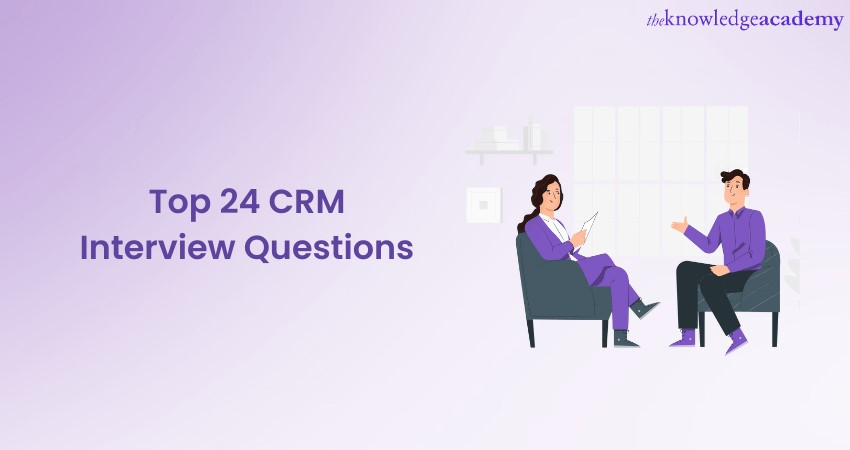
Customer Relationship Management (CRM) is a strategic methodology that empowers enterprises to oversee and scrutinise their engagements with both existing and prospective Customers. Are you planning a career in CRM or seeking to elevate your standing in this industry? You are in the right spot.
This comprehensive blog will encompass all the essential information concerning CRM Interview Questions, how to prepare yourself for the interview, and how to leave a lasting impression on prospective employers by showcasing your CRM expertise and abilities.
Table of Contents
1) CRM Interview Questions
a) What is the significance of CRM for businesses, and how does it function?
b) Could you list some technical advantages associated with the integration of CRM within an organisation?
c) Which CRM software platforms are commonly used in the industry?
d) What are the various classifications of CRM systems?
e) Identify the hindrances that can impede the success of CRM in an organisation.
f) What challenges might an organisation encounter when implementing CRM?
g) Highlight the key modules within the CRM.
h) How does CRM assist in managing Customer emails effectively?
i) Is it feasible to integrate CRM with social media platforms?
j) What questions should you ask to determine if your organisation needs a CRM system?
2) Conclusion
CRM Interview Questions
The following are the Customer Relationship Management (CRM) Interview Questions that will help you prepare better for the interview.
1 What is the significance of CRM for businesses, and how does it function?
Customer Relationship Management (CRM) refers to an approach and set of methodologies that organisations employ to effectively oversee and scrutinise their interactions with Customers, as well as the associated data, across the Customer's journey with the company. This includes implementing strategies and techniques to nurture and enhance Customer relationships.
It also involves meticulously collecting and examining customer-related information and optimising these insights to guide decision-making and business operations at various touchpoints.
2) Could you list some technical advantages associated with the integration of CRM within an organisation?
The advantages of integrating CRM into an organisation are manifold and encompass a range of valuable capabilities, such as:
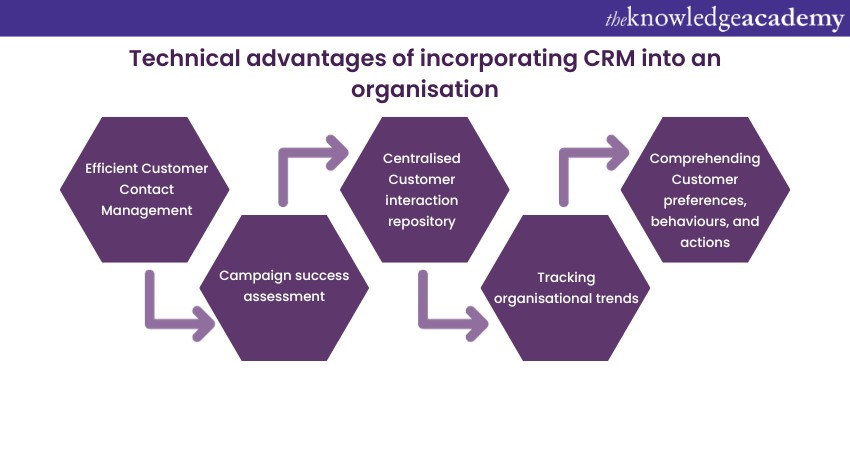
1) Efficient Customer Contact Management: CRM systems enable organisations to effectively manage and maintain comprehensive Customer contact information, fostering streamlined communication and interaction tracking.
2) Campaign success assessment: CRM empowers companies to assess the effectiveness of their campaigns and initiatives, facilitating data-driven decision-making to enhance marketing strategies.
3) Centralised Customer interaction repository: CRM systems serve as a centralised hub for consolidating and organising all Customer interactions, ensuring that vital information is readily accessible to support better decision-making.
4) Tracking organisational trends: Through CRM, organisations can track and analyse trends within their operations, assisting in the identification of patterns, opportunities, and areas for improvement.
5) Comprehending Customer preferences, behaviours, and actions: CRM systems offer deep insights into Customer preferences, behaviours, and actions, helping organisations gain a profound understanding of their clientele to tailor services and offerings accordingly.
3) Which CRM software platforms are commonly used in the industry?
A selection of widely recognised CRM software solutions includes:
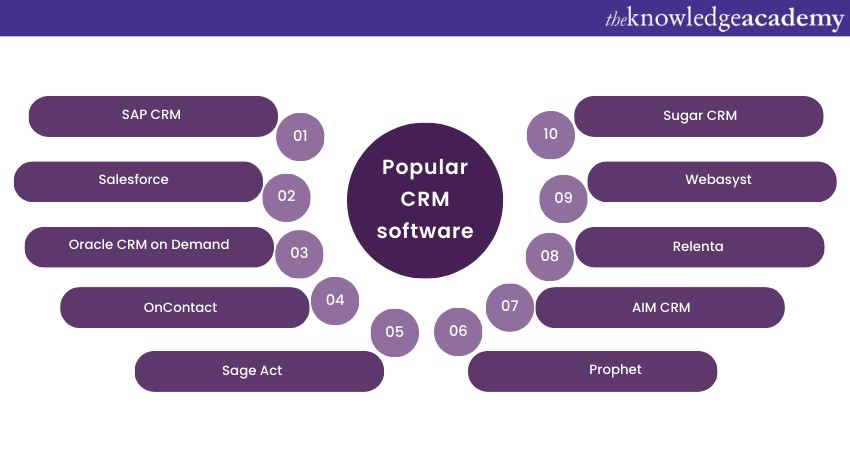
1) SAP CRM
2) Salesforce
3) Oracle CRM on Demand
4) OnContact
5) Sage Act
6) Prophet
7) AIM CRM
8) Relenta
9) Webasyst
10) Sugar CRM
4) What are the various classifications of CRM systems?
CRM is typically categorised into three main types:
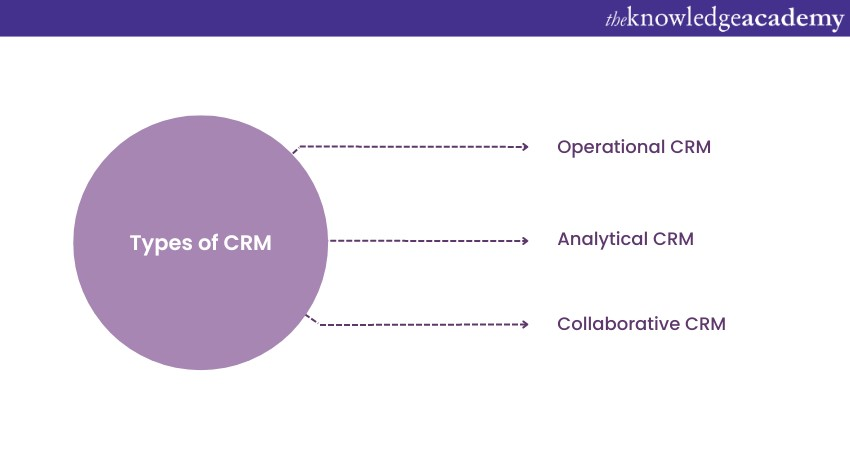
1) Operational CRM: This type focuses on automating and streamlining day-to-day Customer-facing processes such as sales, marketing, and Customer service.
2) Analytical CRM: Analytical CRM involves in-depth data analysis to gain insights into Customer behaviour, preferences, and trends, helping organisations make informed decisions.
3) Collaborative CRM: Collaborative CRM emphasises effective communication and teamwork among different departments to ensure a unified Customer experience and efficient handling of Customer inquiries.
5) Identify the hindrances that can impede the success of CRM in an organisation.
Factors that can hinder the success of CRM within an organisation include the following:
1) Unclear transition processes: When the transition to CRM lacks clarity, it can present a significant hurdle to success.
2) Overemphasis on product sales and geographic segmentation: Focusing primarily on product sales and geographic market divisions can divert attention from Customer-centric strategies.
3) Neglect of Key Performance Indicators (KPIs): Failure to track essential Key Performance Indicators (KPIs) can impede the assessment of CRM's effectiveness.
4) Inefficient organisational structure: A weak functional organisation within the company may lead to suboptimal CRM implementation.
5) Inadequate response to Customer feedback: Neglecting Customer feedback and recommendations can hinder the fine-tuning of CRM strategies to meet Customer needs.
6) What challenges might an organisation encounter when implementing CRM?
Organisations encounter several challenges, including:
1) The need to clean and validate client information in the database to ensure its correctness
2) The task of seamlessly integrating CRM systems with various other systems, whether they are new or already in place
3) Dealing with complex systems that may necessitate training external trainers to ensure proficiency
4) The expectation is that vendors will handle all aspects of the project, which can pose its own set of challenges
7) Highlight the key modules within the CRM.
Prominent modules within CRM comprise:
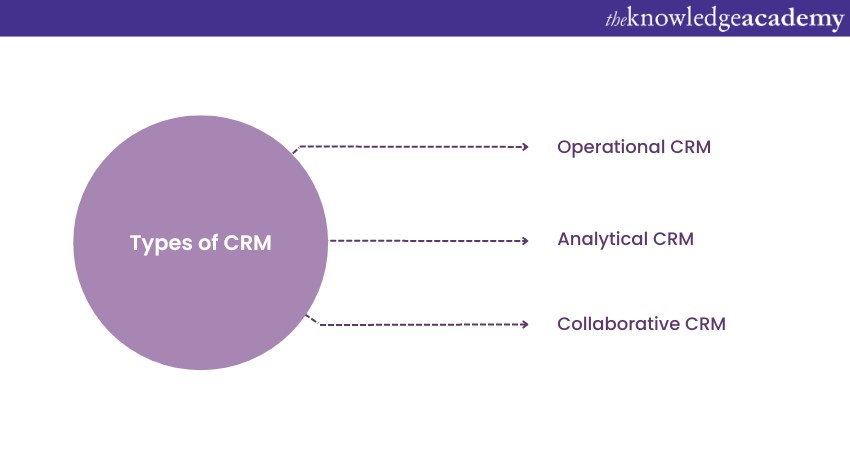
1) Marketing
2) Inventory
3) Sales
4) Service desk
8) How does CRM assist in managing Customer emails effectively?
CRM proves valuable by:
1) Utilising workflow-enabled email processing features to categorise Customer emails efficiently
2) Automatically directing emails to the right users according to predefined workflow criteria
3) Efficiently handling multiple email attachments
4) Automatically sending responses to Customers
5) Linking emails with the corresponding Customers and incidents
9) Is it feasible to integrate CRM with social media platforms?
Yes, CRM integration with social networking platforms is a possibility, with a particular emphasis on leveraging social media for the purpose of elevating Customer engagement.
10) What questions should you ask to determine if your organisation needs a CRM system?
If you find yourself with unanswered questions such as these, it is a strong indication that your organisation could greatly benefit from implementing a CRM solution:
1) Visibility into Customer Service issues: Are you equipped to track and understand the number of service issues individual Customers have faced and the underlying reasons behind these issues? A CRM solution can provide the necessary insights to enhance Customer support and satisfaction.
2) Effective lead follow-up: Do you have confidence that every lead in your sales pipeline is receiving the attention it deserves? CRM software can ensure that leads are systematically and consistently followed up, leading to more opportunities for conversion.
3) Efficient communication with prospective clients: Are you certain that your team is maintaining effective and cohesive communication with potential clients? A CRM system can facilitate streamlined communication and collaboration, ultimately strengthening your client relationships and sales efforts.
Learn how to manage and automate your sales process with HubSpot CRM Training and stay ahead of the learning curve!
11) Why is Customer Relationship Management (CRM) important for businesses, and what does it entail?
Its significance to businesses is essential, as it empowers them to offer individualised interactions, elevate Customer contentment, and produce revenue expansion. CRM systems are instrumental in collecting and preserving Customer data, offering invaluable glimpses into Customer conduct and inclinations. By comprehending their Customer base, businesses can custom-tailor their products and services to cater to demands, facilitating robust Customer connections.
12) Are you knowledgeable about well-known CRM software solutions such as Salesforce, HubSpot, or Zoho CRM?
Provide a brief overview of your familiarity with pertinent CRM platforms and any certifications or training you have accomplished. If you possess specialised proficiency in any of these systems, elaborate on how you have used them to oversee Customer data and derive insights to inform decision-making.
You can structure your answer as follows, "My background includes extensive experience with Salesforce, encompassing the management of Customer data, the creation of tailored workflows, and the production of comprehensive sales analysis reports. I have also effectively leveraged HubSpot for marketing automation, lead tracking, and email campaign management. I have a strong command of Zoho CRM, where I have efficiently integrated Customer support procedures and implemented automation to streamline repetitive tasks."
13) Explain the importance of data security and privacy in the context of CRM.
Emphasise the significance of safeguarding data security and privacy within CRM. Elaborate on your comprehension of data privacy regulations, such as GDPR, and outline the steps you have taken to ensure conformity while upholding the integrity of Customer data.
Learn how to enable CRM analytics and assign permissions to administrators and users with our Salesforce CRM Masterclass
14) Can you describe your experience leading a CRM project, from inception to implementation?
Furnish an elaborate account of the CRM project, encompassing its goals, hurdles, and ultimate achievements. Delve into your role in project preparation, team cooperation, and successful execution. Highlight your approaches to surmount challenges and ensure the project's triumph.
You can answer: "During my tenure as CRM Manager, I spearheaded a CRM implementation initiative with the primary objective of streamlining Customer onboarding procedures. We encountered issues tied to data migration and resistance to process modifications. To tackle these challenges, I established close collaborations with multifaceted teams, spanning IT and Customer support. We formulated a phased implementation strategy, enabling users to acclimate to the new CRM system gradually. Due to these concerted efforts, we realised a remarkable reduction in Customer onboarding time, and user adoption surpassed our initial expectations."
15) How do you ensure that CRM projects align with business objectives and yield measurable outcomes?
Describe your method for aligning CRM projects with business goals. Highlight how you establish explicit project objectives, determine Key Performance Indicators (KPIs), and evaluate project performance. Stress the significance of data-informed decision-making and continuous enhancements.
You can answer: "To align CRM projects with business objectives, I commence by engaging with key stakeholders to gain insights into their specific business aims. We establish transparent and measurable project objectives, such as enhancing Customer retention or elevating sales conversion rates. I subsequently define pertinent KPIs to monitor progress and measure project efficacy. Consistent data analysis and reporting are vital in ensuring the project remains on course and delivers the anticipated outcomes."
Gain an understanding of Apex programming language with syntax through our Salesforce Apex Programming Language Training
16) How do you incorporate Customer Experience (CX) strategies into CRM initiatives?
Explain your process of infusing CX strategies into CRM for personalised Customer experiences. Detail how you gather feedback, study Customer journeys, and customise interactions to match individual preferences.
Sample Response: "To integrate CX strategies into CRM, I collect feedback via surveys, focus groups, and social media monitoring. This insight into Customer pain points and expectations helps fine-tune our CRM processes. With Customer journey mapping, I ensure every interaction is personalised to align with preferences, ensuring seamless, individualised experiences that cultivate lasting Customer relationships."
17) What metrics do you use to gauge the effectiveness of CRM in enhancing Customer loyalty and retention?
Explain the primary indicators you utilise to assess CRM's influence on Customer loyalty and retention. Delve into your approach for scrutinising Customer data to detect patterns and prospects for refining Customer relationships.
You can answer: "In assessing CRM's impact on Customer loyalty and retention, I closely track essential metrics like Customer retention rate, repeat purchase rate, and Customer Lifetime Value (CLV). I employ Customer Satisfaction (CSAT) and Net Promoter Score (NPS) to gauge Customer sentiment. Through systematic data analysis, I pinpoint trends and insights that inform the fine-tuning of our CRM strategies, such as recognising upsell or cross-sell opportunities that elevate CLV and overall Customer loyalty."
18) How do you leverage CRM data to shape marketing and sales strategies?
Elaborate on your utilisation of CRM data for crafting precise marketing campaigns and enhancing sales procedures. Discuss the application of Customer segmentation and analytics to pinpoint prospects for individualised marketing and sales endeavours.
Sample Response: "CRM data is a cornerstone for shaping marketing and sales strategies. Through Customer segmentation encompassing demographics, behaviour, and purchase history, I design tailored marketing campaigns that resonate with specific Customer segments. For example, I may customise promotions for high-value Customers or furnish personalised product recommendations based on their previous purchases. CRM analytics furnish insights into sales performance and funnel analysis, helping me identify constraints and openings for augmenting sales."
19) Share an instance where CRM data analysis significantly improved decision-making within your organisation.
Share a specific instance where CRM data analysis influenced a business decision, discussing the impact of data insights on the decision-making process and the ensuing positive outcomes.
Sample Response: "In a recent case, CRM data analysis spotlighted a substantial Customer churn post-initial purchase, primarily due to inadequate onboarding support. With this revelation, I proposed launching a proactive onboarding program for new Customers. This data-driven move led to a reduction in churn within three months and heightened Customer satisfaction scores. The decision to invest in onboarding initiatives, guided by data insights, not only retained more Customers but also bolstered Customer loyalty and advocacy."
20) In what ways does CRM contribute to optimising the sales funnel and increasing conversion rates?
Explain how CRM software streamlines lead management, tracks their progress in the sales funnel, and pinpoints areas for sales process enhancement. Emphasise the advantages of automation and data analytics in refining the sales pipeline.
You can answer: ""CRM is pivotal in enhancing the sales funnel and elevating conversion rates. It allows lead capture and classification, facilitating the identification of promising prospects for prioritised follow-ups. Automation simplifies personalised follow-up and interaction tracking. Data analytics help pinpoint sales process bottlenecks for improvements. Continuous analysis of conversion rates empowers data-driven decisions to boost sales performance and revenue.""
Understand and learn about the roles and responsibilities of a Salesforce administrator with our Salesforce Admin Course.
21) How do you measure the Return on Investment (ROI) for CRM initiatives?
Outline your approach to gauging CRM initiative ROI, considering financial and non-financial aspects. While financial metrics like revenue growth and cost reductions are pivotal, non-financial elements like Customer satisfaction and loyalty are equally vital. The monitoring of Customer engagement and retention-related Key Performance Indicators (KPIs) offers insight into the enduring advantages of CRM investments.
22) How do you ensure seamless integration of CRM data with other business systems?
Clarify your approach to CRM data integration, underscoring the need for seamless data exchange between CRM and other business systems. This involves aligning data formats and APIs, implementing data governance, and ensuring data quality through routine audits. By integrating CRM data with other systems, processes become streamlined, boosting overall efficiency and enhancing accuracy.
You can answer: "Seamless CRM data integration is pivotal for a unified view of Customer interactions. I prioritise data compatibility, APIs, and collaboration with IT and data teams to ensure governance and data quality. Regular audits maintain accuracy, streamlining processes and enhancing efficiency for the organisation and Customers."
23) What strategies do you employ to ensure successful user adoption of new CRM systems or features?
Share your techniques for encouraging user acceptance of new CRM systems or functionalities. Highlight the importance of user training and ongoing assistance in facilitating a smooth transition and bolstering user confidence.
Sample Response: "Effective user adoption is crucial for the success of any fresh CRM system or feature. I emphasise comprehensive user training to provide employees with the skills and knowledge to use the CRM effectively. Hands-on training and user-friendly documentation ensure user confidence in navigating the CRM. I advocate for open communication, welcoming user input to address concerns or difficulties during adoption. By involving users in decision-making and implementation, we foster ownership and engagement, ultimately leading to a more successful CRM adoption."
24) How do you use CRM data analytics to identify actionable insights and guide strategic decision-making?
You can answer this: "Utilising CRM data analytics to drive strategic decisions is integral. I define relevant KPIs aligned with our objectives, such as Customer retention and lifetime value. Through data analysis and visualisation, I discern Customer behaviour trends for personalised marketing and improved engagement. Segmenting Customers based on preferences informs tailored product offerings and cross-selling opportunities. Data-driven decision-making underpins my approach, bolstering the chances of successful strategic initiatives."
Conclusion
With an understanding of fundamental CRM principles, technical intricacies, and strategic implications, you have equipped yourself with the knowledge to excel in CRM Interviews. Your deep experience in these critical areas makes you a compelling candidate ready to leave a lasting impression on prospective employers. Hope we could answer all your queries on CRM Interview Questions!
Learn how to create, run, and develop the application on the Salesforce platform by undergoing a Salesforce Platform App Builder Training and stay ahead of the learning curve!
Frequently Asked Questions
Upcoming Office Applications Resources Batches & Dates
Date
 Salesforce CRM Masterclass
Salesforce CRM Masterclass
Fri 28th Feb 2025
Fri 4th Apr 2025
Fri 27th Jun 2025
Fri 29th Aug 2025
Fri 24th Oct 2025
Fri 5th Dec 2025







 Top Rated Course
Top Rated Course



 If you wish to make any changes to your course, please
If you wish to make any changes to your course, please


